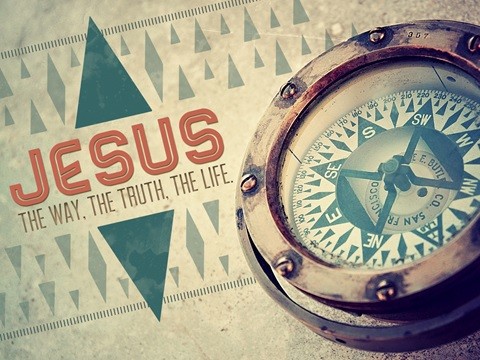
I once perceived Theology as something only seminary students and brilliant people who have too much time on their hands would want to study. I figured that as long as I have smart people to keep me informed, I would not have to study it on my own. Most people probably have the same mind set as I did. It is the pastors’ job to study theology and we learn what we need to know from sermons on Sunday. However I have learned that, merely absorbing the words from the pulpit once a week is far from sufficient for an individual to really know God.
By personally digging into the foundations of our faith, we are able to draw a firm conclusion as to why we believe what we believe. Not just because someone told us to accept it in order to avoid eternal damnation, but because we ourselves have thoroughly analyzed the essence of Christian doctrine and are able to say with complete confidence that Jesus Christ, the centerpiece of Christianity, is truth.
Jesus’ philosophy for the Christian life is put very simply: “If you love me, you will obey my commands” (John 14:15). The problem is, many of us find it very difficult to “just obey” His commands, and we wonder why. I think it goes back to the deficiency of theology in the majority of Christians. James M. Boice in his book, Foundations of The Christian Faith says, “We do not have a strong church today, nor do we have many strong Christians. We can trace the cause to an acute lack of sound spiritual knowledge.”1

How do we love a person we do not know? We do not obey because we do not love, and we do not love because we do not know. Boice gives us several different meanings of the word ‘knowledge,’ saying that our knowledge of God should go beyond awareness of Him, knowing about Him, or even experiencing Him.
True “knowledge of God takes place only where there is an accompanying acceptance of God’s gracious provision for our need through the work of Christ and the application of that work to us by God’s Spirit.” 2 If we only knew God, without a doubt, we would fall deeply in love with Him. When that happens, obeying Him will not be the arduous task we often perceive it to be.
We should also want to study theology because we would then be able to answer questions aimed at us concerning our faith in an unseen power. Regardless of whether the source of the questions is from an innocent person seeking answers to salvation or from a hostile group aiming to bring Christianity down, we ought to be able provide clear, unhesitant answers. After all, what kind of honor or glory would be given to God if His own followers were unsure of Him? What sort of ambassadors would we be if we could not stand up for the Kingdom we represent?

Our Christian mandate is to make disciples; to bring people to the saving knowledge of Jesus Christ and in so doing, we cannot afford to bring shame to the name of Jesus by being completely clueless about the person we call our Father. Though it may be true that a person does not need theological knowledge to be saved, theology is necessary in order to live out the Christian life with the ultimate goal of pleasing God. Without a healthy relationship between that person and God, stagnation will take place, and Christianity will be no different from all the religions of the world. In short, God is glorified when we learn about Him.
That being said, some people reason that objectivity in theology is impossible. Since we can never all agree on every aspect of this unique science in every way, we might as well not waste our time. Some may say that trying to understand the human mind is complicated enough—what more trying to understand God. In fact, Thomas V. Morris did state in his book Our Idea of God, that “[s]ome have feared the topic to be too exalted for any reliable human cognition whatsoever.”3
Be that as it may, although we are dealing with an abstract claim, objectivity in theology is possible through rational thinking and justification that fulfills all necessary criteria. It is much easier to rule it off as subjective and agree to disagree, but God has made us by way of the imago dei in which He has endowed us with free will, a moral conscience, cognitive capacity, language and the ability to rationalize.

God would not have given us these things only to turn around on us and disparage these abilities by putting Himself out of our reach or completely beyond human comprehension. While it is true that there are some things about God which we will never understand until we see Him, everything that builds the foundation of our faith and doctrine is within the capacities of the human mind to grasp, for indeed, theology is a construct of our own making.
Much of what we know and understand is by human reason. The world’s conception of theology has been thwarted into something of an unpleasant nature—something of which most people prefer to avoid. Our purpose is to reconcile the tension between man and the distorted view of theology, which is in actual fact a beautiful thing; because if it were not a beautiful thing, there would be no worth to it.
Many times as Christians, we say that we believe what we believe because the Bible says it is the truth. The problem with this claim is that no matter how true the Bible may be, there has to be another way to prove that what the Bible says is true other than the fact than the Bible itself says so. Therefore, theologians have taken on the philosophical approach; to prove the existence and nature of God from a perspective outside of the Bible in order to justify that the Bible is the truth so that we may believe everything else in the Bible.

Morris says that “[t]he aim of philosophical theology is to employ the best of philosophical methods and techniques for the purpose of gaining as much clarity as possible concerning the content of the major concepts, presuppositions, and tenets of theological commitment, as well as the many connections that exist among them.”4
A belief is our attitude towards a proposition; a claim or assertion which is frozen in time and space which would serve as a declarative sentence which would then have to be decided to be true or false. If it is true, it will have to be justified through rational evidence and arguments.
Note that there is a difference between being rational and being right, as a person could be irrational but not improbable or implausible; or be rational but not be right. At the same time, something that is implausible cannot be declared to be logically impossible and therefore, a person has every right to proceed to justify the logical plausibility of a seemingly irrational and improbable proposition.
In the study of theology, it is our part to bring together implausible rationality and truth, in which the truth is the truth whether or not we choose to believe it, or even if it is never discovered or found, because it is truth. So we can choose to believe that Jesus Christ, who is the Son of the Living God and is at the same time one with the Father and the Holy Spirit, came to Earth in the form of a human being—however irrational or highly unlikely it may seem, or we can choose to disbelief it and rule it out as utter nonsense.

Either way, it remains the truth. Discrediting these facts will not make Christ any less real than He actually is. Now if someone were to prove that what we Christians believe is not true, we will then be rationally obligated to dismantle our belief; to disregard all we have put our faith in thus far, and to search for truth elsewhere. However, over the centuries, no one has been able to successfully prove the nonexistence of God as the Christians view Him, and therefore I am able to put my trust and faith in Jesus despite the fact that He cannot be visibly seen.
This brings me back to objectivity. However subjective the act of Christian faith in Christ may seem due to the lack of empirical evidence, through solid rationalization, which proves God’s existence to be true thus resulting in the Bible being true, we are able to come to an objective view of God. Our doctrine is objective as is the Word of God. Scripture is to be taken literally; literally meaning we know when to understand the text as it is written; whether we are to take it word for word, or whether it is a metaphor or analogy or some other kind of literary style.
This also requires rational thinking, for no one in the right frame of mind would picture God literally cooking Israel in a pot. Through sound biblical exegesis and sufficient time spent with the Author of the Book, we will be able to gather the objectivity of Christianity.

If every Christian organization, every denomination, every church, and every individual would firmly ground their doctrine on a solid biblical foundation—if we would disregard all biases and stop taking Scripture out of context to apply to us the way we want it to instead of the way God meant for it to, there will be very little dispute within the body of Christ.
God has created us to be co-creators of the world He has materialized. He did not give us a complete world and leave us here with nothing to do. Similar to building a house for someone, we need to be in close contact with the person who designed it and we have to familiarize ourselves with the construction plans. We have to consult with the chief architect and pay close attention to the minute details in order to make the house reflect the designer’s creativity.
This is how it is with God. In order to reach the optimum capabilities of our human agency, we have to form a close relationship with God by knowing Him. We need to base our every action on the Bible, because it His construction plan, His roadmap, His recipe book and His personal words of encouragement. He has given it to us to get through this life and to make this world a world that is made up one people who will reflect His beauty and majesty.
1James M. Boice. Foundations of the Christian Faith (Illinois: InterVarsity Press, 1986), 25.
2Boice, Foundations, 23.
3Thomas V. Morris, Our Idea of God, (Illinois: InterVarsity Press, 1991), 16.
4Morris, Our Idea, 15-16.
|Share The Good News|
Esperanza Ng




Leave a Reply